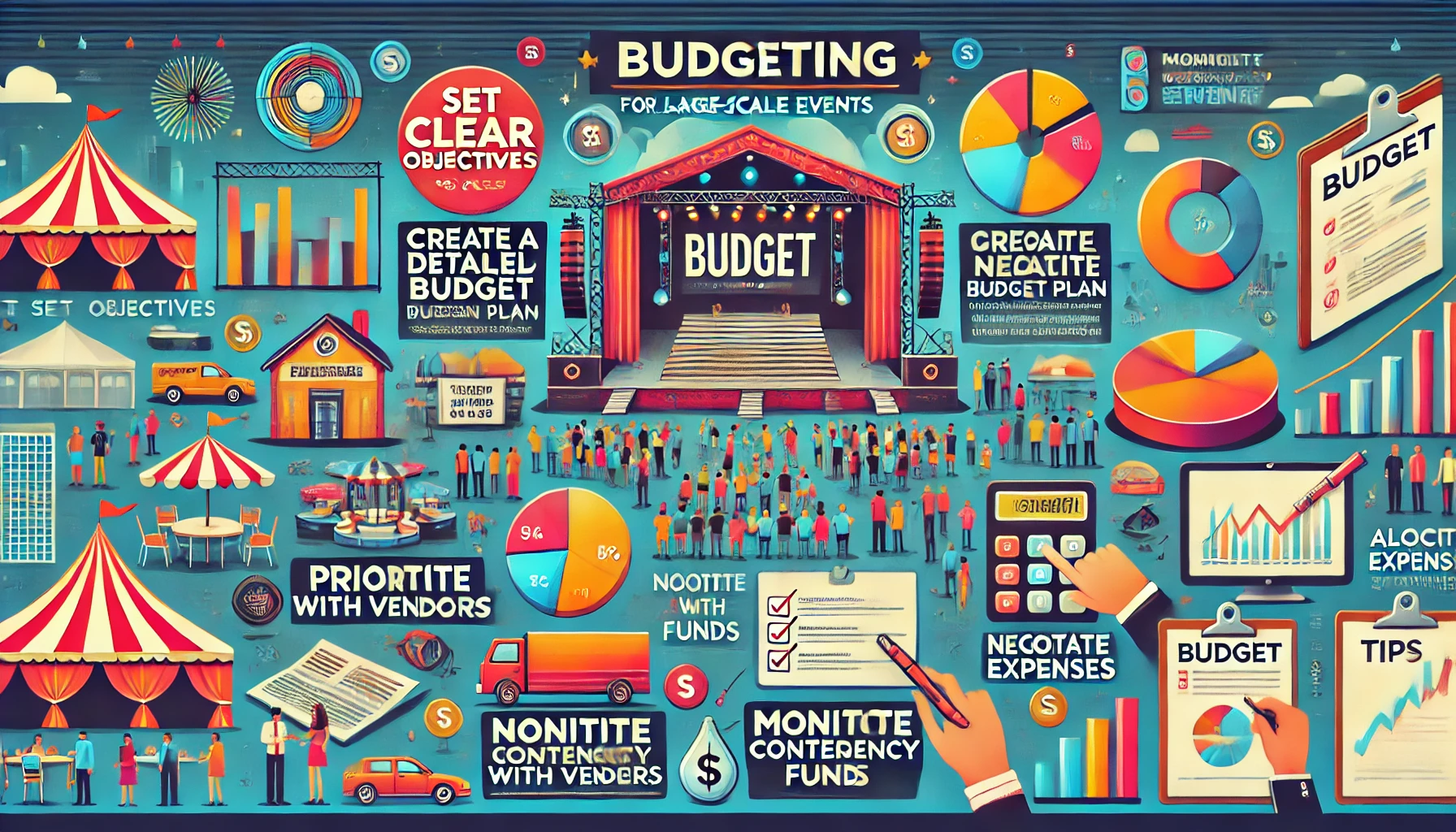Budgeting Tips for Large-Scale Events
Organizing large-scale events requires meticulous planning, especially when it comes to budgeting. Ensuring that every rupee is well-spent is crucial for the success of the event. Indian Exhibition Services (IES), a leading exhibition company in India, offers insights on how to manage your budget effectively for large-scale events. Here are some essential budgeting tips to help you allocate resources wisely.
Set Clear Objectives and Create a Detailed Budget
The first step in effective budgeting is to define your event’s goals. Understanding what you aim to achieve—be it brand exposure, lead generation, networking, or product launches—will guide your budget allocation. Clear objectives help you prioritize spending on the most critical aspects of your event.
A detailed budget plan should include all potential expenses. This encompasses venue costs, marketing, staff, logistics, catering, technology, and contingency funds. Break down each category to understand where your money is going and identify areas where you can cut costs without compromising quality.
Utilize budgeting tools and software to track expenses and stay organized. Tools like Microsoft Excel, Google Sheets, or specialized event budgeting software can help you manage your budget efficiently. These tools allow for real-time updates and provide a clear overview of your financial situation at any given time.
Negotiate with Vendors and Optimize Resource Allocation
Effective budgeting involves negotiating with vendors to get the best deals. Exhibition companies like IES often have established relationships with vendors, which can be leveraged to secure discounts and favorable terms. Don’t hesitate to negotiate prices, especially for high-cost items such as venues and catering. Building good relationships with vendors can also lead to better deals and flexibility.
Optimize your resource allocation by evaluating the cost-effectiveness of each expense. For instance, consider using digital marketing strategies over traditional ones if they offer better reach and engagement at a lower cost. Similarly, assess whether certain services can be handled in-house rather than outsourced. This evaluation helps in reallocating funds to areas that provide the most value.
Always have a contingency fund to handle unexpected expenses. Large-scale events are complex, and unforeseen costs can arise. A contingency fund ensures that you are prepared for any last-minute changes or emergencies without compromising other budgeted items.
Monitor and Adjust Your Budget
Continuous monitoring is crucial to ensure you stay within your budget. Regularly review your expenses against the budget plan to identify any discrepancies or areas of overspending. This allows you to make necessary adjustments before it impacts the overall financial health of your event. Monitoring helps in keeping track of every expenditure and ensuring transparency.
Flexibility is key in budgeting. Be prepared to reallocate resources based on changing circumstances. For example, if marketing efforts are yielding higher engagement, consider shifting more funds towards boosting promotional activities. Conversely, if certain expenses are lower than anticipated, redirect the surplus to other areas in need. Flexibility ensures that the budget is optimized to meet evolving needs.
After the event, conduct a thorough evaluation of your budget. Compare the actual spending with your initial budget to understand where deviations occurred. This post-event analysis is crucial for improving future budgeting and planning processes. Learning from each event helps in better financial planning for subsequent events.
Effective budgeting is essential for the success of any large-scale event, ensuring that resources are allocated wisely and efficiently. Indian Exhibition Services (IES) emphasizes the importance of clear objectives, detailed planning, and continuous monitoring in the budgeting process. By setting clear goals, prioritizing spending, negotiating smartly, and remaining flexible, you can manage your event’s finances effectively.














Post Comment